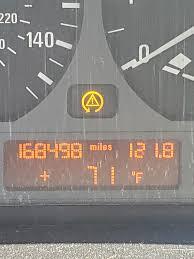Performance and luxury vehicles in today's automotive market commonly feature Dynamic Stability Control (DSC) as a fundamental component. BMW owners or potential buyers might already be familiar with the term dsc bmw. The system aims to increase safety measures while providing improved driving dynamics and superior vehicle control during tough road conditions.
What Is DSC in BMW?
DSC stands for Dynamic Stability Control which functions as an electronic mechanism that maintains vehicle stability through automatic adjustments to power and braking based on road and driving situations. This system operates in conjunction with traction control and anti-lock braking systems to minimize skidding and maintain vehicle control.
The system monitors wheel speed, steering angle and lateral acceleration among other factors to identify instability occurrences. The system can apply brakes to specific wheels and regulate engine power when it detects an impending traction loss to maintain vehicle stability.
How DSC BMW Enhances Driving Safety
dsc bmw functions as an essential safety feature that reduces the risk of accidents during slippery road conditions and high-speed driving scenarios. Here’s how it improves driving safety:
The DSC system maintains road grip by cutting power when it detects wheel spin.
The system restores vehicle control during slides by selectively braking individual wheels.
During adverse weather conditions DSC functions to avoid hydroplaning and maintain vehicle control.
The anti-lock braking system (ABS) receives support from this function to deliver controlled stopping.
DSC vs. Traction Control: What’s the Difference?
Although many drivers mix up DSC with traction control, these technologies work towards separate objectives. Traction control maintains stability by preventing wheel spin during acceleration whereas DSC takes active measures to correct stability when it detects a loss.
dsc bmw stands out because it manages power delivery while simultaneously controlling the braking force on each wheel. The system demonstrates superior control retention during unexpected maneuvers or tough driving circumstances.
Should You Turn DSC Off?
DSC proves useful for regular driving yet some specific scenarios necessitate deactivating it. Driving enthusiasts who want to experience more control may choose to turn off DSC temporarily during dry road conditions or while operating in controlled settings like racetracks. Deactivating DSC eliminates electronic support which forces drivers to depend completely on their own abilities for vehicle control.
The best practice for normal driving conditions is to keep BMW's DSC system active to maintain peak safety levels. Disabling DSC temporarily can assist with vehicle movement when driving through deep snow or loose gravel conditions.
Understanding DSC in BMW: How It Works and Why It’s Important
Performance and luxury vehicles in today's automotive market commonly feature Dynamic Stability Control (DSC) as a fundamental component. BMW owners or potential buyers might already be familiar with the term dsc bmwThe system aims to increase safety measures while providing improved driving dynamics and superior vehicle control during tough road conditions.
What Is DSC in BMW?
DSC stands for Dynamic Stability Control which functions as an electronic mechanism that maintains vehicle stability through automatic adjustments to power and braking based on road and driving situations. This system operates in conjunction with traction control and anti-lock braking systems to minimize skidding and maintain vehicle control.
The system monitors wheel speed, steering angle and lateral acceleration among other factors to identify instability occurrences. The system can apply brakes to specific wheels and regulate engine power when it detects an impending traction loss to maintain vehicle stability.
How DSC BMW Enhances Driving Safety
Dsc bmw functions as an essential safety feature that reduces the risk of accidents during slippery road conditions and high-speed driving scenarios. Here’s how it improves driving safety:
The DSC system maintains road grip by cutting power when it detects wheel spin.
The system restores vehicle control during slides by selectively braking individual wheels.
During adverse weather conditions DSC functions to avoid hydroplaning and maintain vehicle control.
The anti-lock braking system (ABS) receives support from this function to deliver controlled stopping.
DSC vs. Traction Control: What’s the Difference?
Although many drivers mix up DSC with traction control, these technologies work towards separate objectives. Traction control maintains stability by preventing wheel spin during acceleration whereas DSC takes active measures to correct stability when it detects a loss.
Dsc Bmwstands out because it manages power delivery while simultaneously controlling the braking force on each wheel. The system demonstrates superior control retention during unexpected maneuvers or tough driving circumstances.
Should You Turn DSC Off?
DSC proves useful for regular driving yet some specific scenarios necessitate deactivating it. Driving enthusiasts who want to experience more control may choose to turn off DSC temporarily during dry road conditions or while operating in controlled settings like racetracks. Deactivating DSC eliminates electronic support which forces drivers to depend completely on their own abilities for vehicle control.
The best practice for normal driving conditions is to keep BMW's DSC system active to maintain peak safety levels. Disabling DSC temporarily can assist with vehicle movement when driving through deep snow or loose gravel conditions.
Signs of DSC Malfunction
DSC systems share the same potential for malfunctions as any electronic device. A continuously illuminated DSC warning light or frequent flashes may suggest a system problem. Common causes of DSC issues include:
Faulty wheel speed sensors
Low brake fluid levels
Malfunctioning ABS module
Steering angle sensor misalignment
Ensure your vehicle's safety by getting the system inspected whenever you detect any of these warning signs.
Conclusion
The Dsc bmw system is essential for vehicle safety as it supports drivers in keeping control during diverse driving conditions. This system creates safer driving conditions through skid prevention and improved traction and braking performance yielding a secure and pleasurable driving experience. Some drivers might choose to turn off the system in particular situations but maintaining activation keeps vehicles stable and safe while driving.

